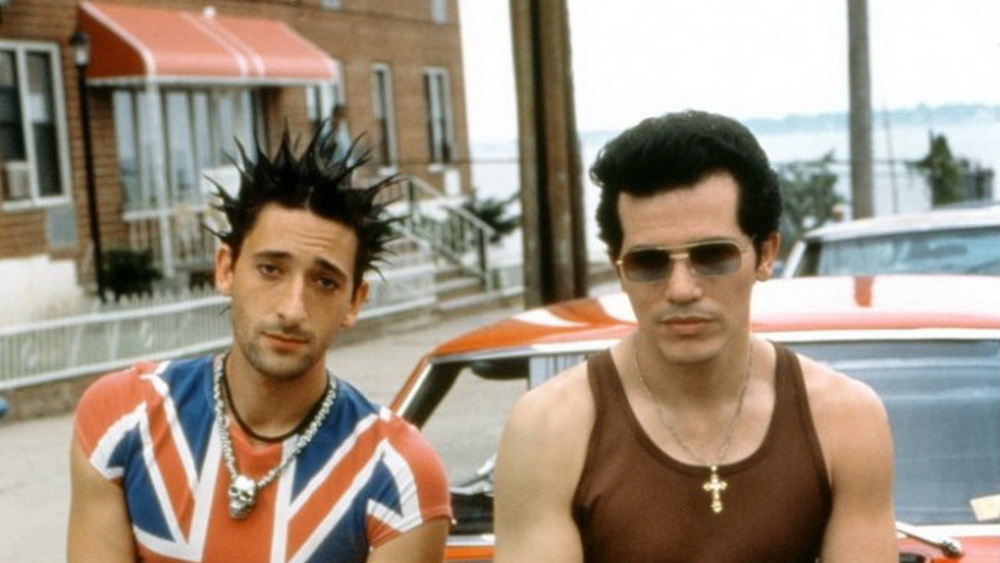
The 90’s is often referred to as one of the weakest decades in film history. It was a time when cinematic excess reached unforeseen peaks of insanity with films like Cutthroat Island and Waterworld, movies that cast an ugly shadow over many smaller, more modest efforts… but it was hardly a cinematic dead zone.
While genres like horror, action, and sci-fi were struggling, a number of outstanding dramas crept out; some were initially showered with praise and have become forgotten, others were viciously panned upon release and deserve another shot. Listed below are ten excellent American dramas from the 1990’s you may have missed.
1. Q & A (1990)
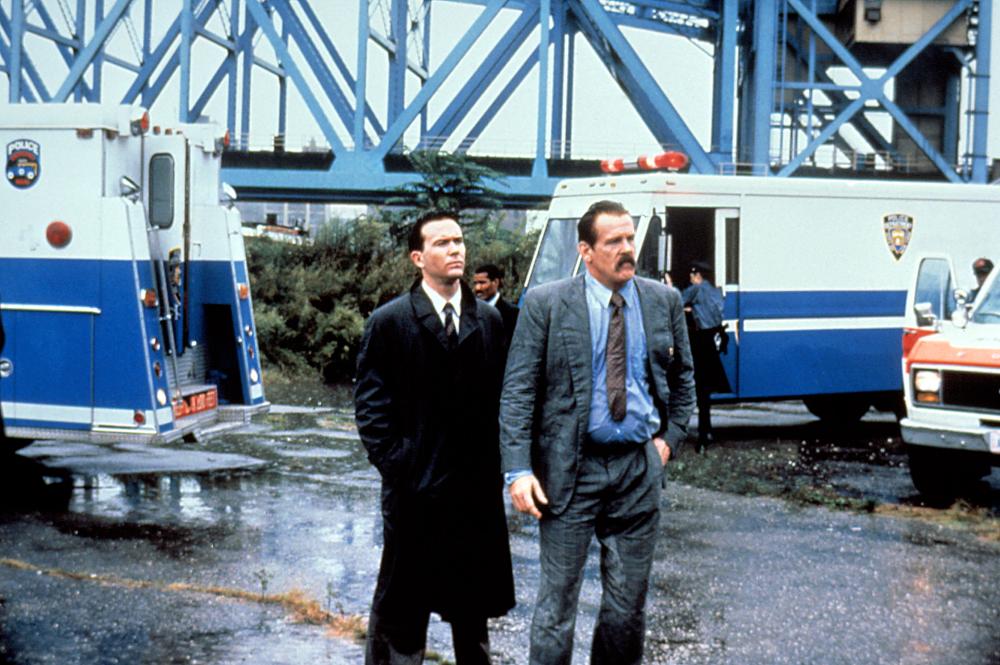
Sidney Lumet tackled many subjects over the course of his varied career, but there was one topic he revisited more than any other: the moral ambiguity inherent in law enforcement. First came Serpico (1973) and then Prince of the City (1981), which was followed eight years later by Q&A, perhaps Lumet’s grittiest look into the world of wayward lawmen.
Timothy Hutton stars as Francis Reilly, an idealistic young lawyer for the DA’s office in New York City. He’s assigned the case of a slain police informant; the murderer is Mike Brennan (Nick Nolte), a veteran NYPD known for his no-nonsense approach. Brennan’s repugnant nature is gradually revealed as Reilly digs deeper into the incident, and soon he grows to realize that Brennan is simply a cog in a massive, corrupt machine – one the counselor is a part of himself.
Lumet’s directorial style can best be described as “ruthlessly straightforward”: minimal flash, long takes, simple set-ups and a heavy reliance on dialogue. In this era of rapid-fire, epileptic seizure editing and CGI explosions, his work is so pure and sparse that it seems almost alien at times. He got the right scripts, assembled the right casts, kept it simple, and always managed to coax top-notch performances out of his actors.
Nolte mesmerizes as Brennan, one of the most vile cops to ever hit the silver screen; you wouldn’t want to be within spitting distance of this guy. Smaller roles are also impeccably cast, with Paul Calderon making a particularly strong impression as a transvestite prostitute. The film is slightly weakened by an inappropriate musical score from Ruben Blades, but that doesn’t keep it from being one of the best crime dramas of the 1990’s.
2. American Me (1992)
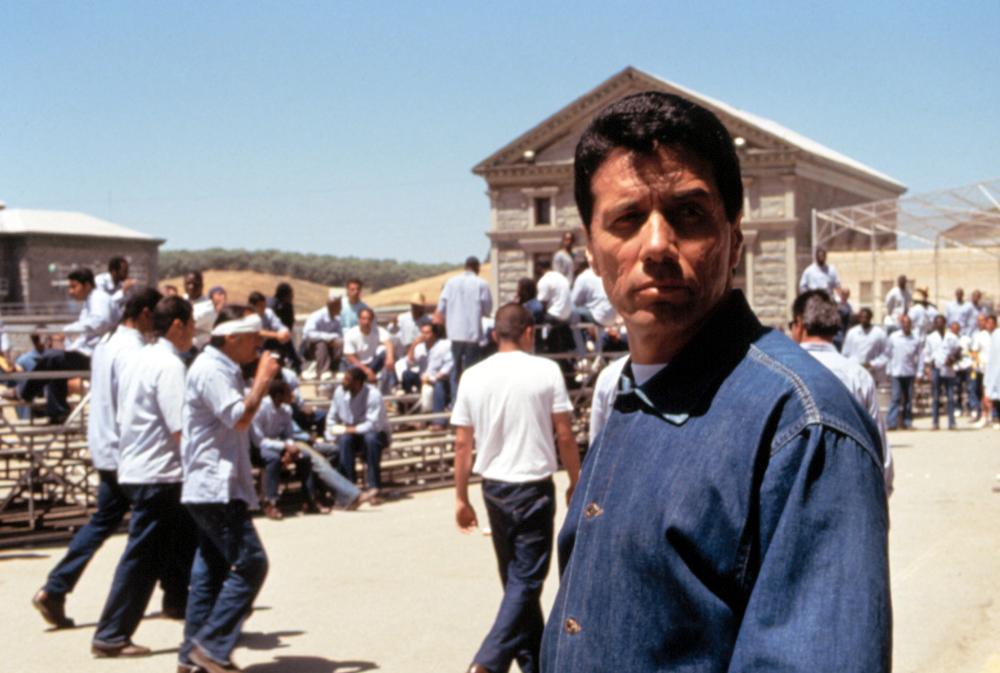
The directorial debut of actor Edward James Olmos, American Me is often compared to Taylor Hackford’s Blood In, Blood Out. Both films were released within one year of each other and cover similar territory while observing Latino gang violence in Los Angeles.
Hackford’s outing is great entertainment but feels rather like an outsiders view of East LA; American Me, on the other hand, is the real deal. Olmos took the lead role of Santana, a kingpin in the Mexican-American Mafia. The film depicts Santana’s life story, covering several decades as we follow Santana from the streets to the penitentiary, watching his gradual transformation from a young thug into a ruthless shot-caller.
Upon being released from prison, Santana finds that years of incarceration have made it impossible for him to live a regular existence and, even worse, that his actions have irreparably damaged his community. American Me is an epic, sprawling picture that never loses its focus or drive, and no stone was left unturned in a quest for extreme authenticity.
For the prison scenes, Olmos assembled a cast of actual gang members from various sets – Crips, Bloods, Aryan Brotherhood, 18th Street – and had them interact harmoniously on a film shoot. Furthermore, two of Southern California’s most infamous street gangs (Il Grande Hazard and MC Forceros) actually called a truce when Olmos requested permission to shoot in their territories.
This staunch adherence to realism also led to negative consequences: three consultants on the film were later murdered when high-ranking Mexican Mafia members saw the finished feature and strongly objected to a (profoundly disturbing) homosexual rape scene that occurs during the prison sequence. Olmos even personally received death threats and took to carrying a concealed weapon for the duration of filming.
American Me does not present a glamorous portrayal of the gangster lifestyle. “Crime doesn’t pay” is hardly a new sentiment within the cinematic universe, but American Me drives this familiar point home as well as any film ever has. Honest and uncompromising, Olmos’s film is a powerhouse that has confidently stood the test of time.
3. The Funeral (1996)
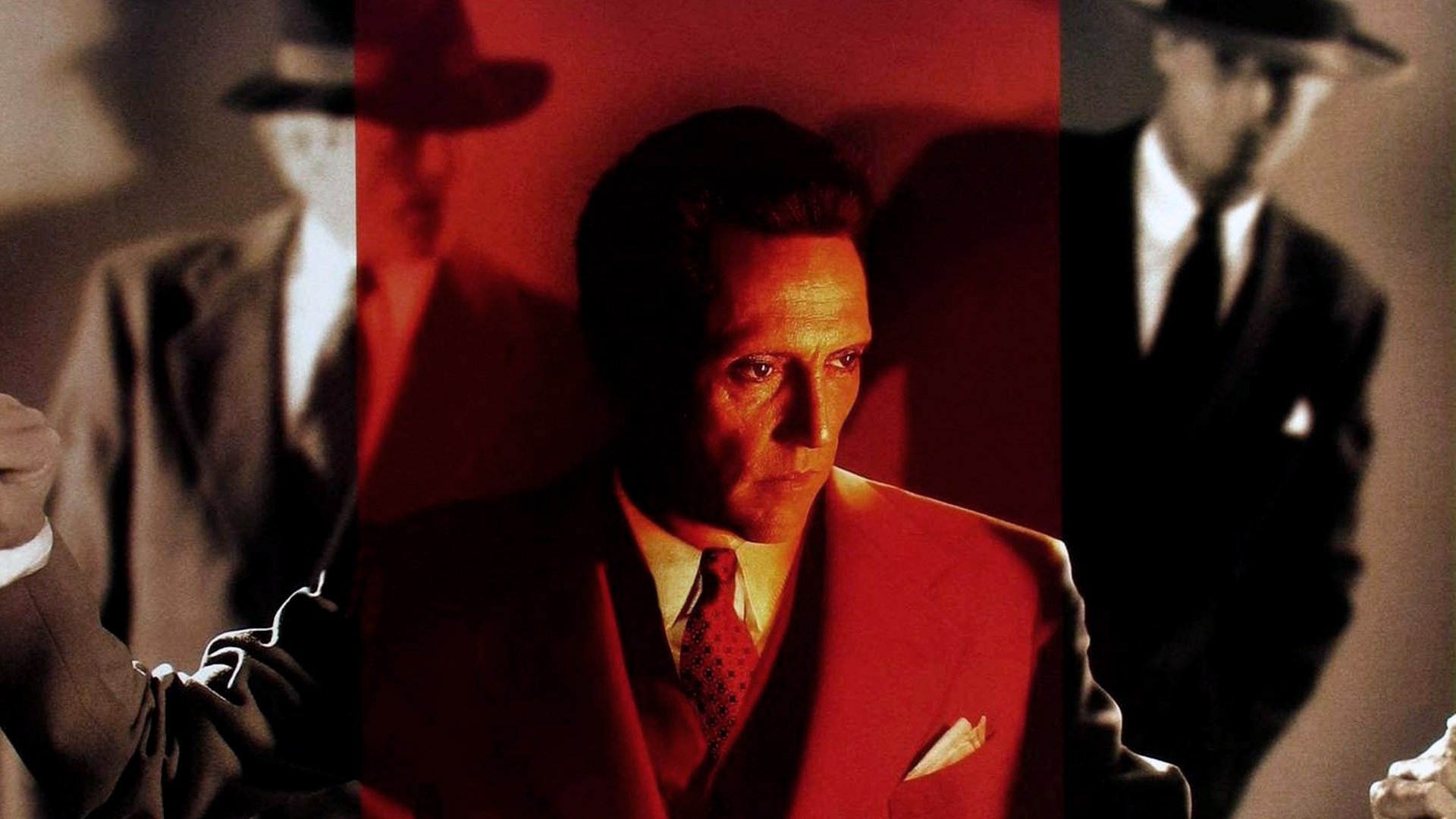
Once described as, “The Godfather if all the characters had gone to college”, Abel Ferrara’s The Funeral presents an unusually deep and thoughtful portrait of the mafia lifestyle.
Set in the 1930’s, the story centers around memorial services for Johnny Tempio (Vincent Gallo), a hotheaded twenty-something gangster. Johnny’s funeral is being held at the home of his brother Ray (Christopher Walken); also present is his other sibling, deeply disturbed bar-owner Chez (Chris Penn), in addition to their wives and families.
Johnny was brutally shot down by unknown assailants and Chez is determined to seek retribution, but Ray is affected differently by Johnny’s death. Raised in a world of vengeance and murder, the demise of his youngest brother has awakened within Ray a deep remorse, a realization that no one can emerge victorious from this endless cycle of violence.
The film does a fair bit of time-hopping, allowing us to see Johnny in life, snapshots of Ray’s early childhood, and (perhaps most memorably) the mental disintegration of Chez. Chris Penn never got the sort of adoration earned by Sean, but he was every bit as talented and goes places many actors wouldn’t dare in The Funeral.
The contrast between the two surviving siblings – introspective Ray, so calm and collected, and the profoundly sick human being that is Chez – is the most successful element of a hugely successful film. It was, sadly, the final collaboration between Ferrara and his usual screenwriter, Nicodemo Oliverio, a.k.a. Nicholas St. John.
A deeply devout Catholic, Oliverio provided a philosophical yin for Abel’s scuzzy yang and the their pairing led to some of the most intelligent exploitation films the world has ever seen. Efforts like Ms. 45 and King of New York deliver violence and titillation while possessing a weirdly poetic vibe, and that poetry is largely thanks to Nicky St. John. The Funeral represents his finest work as a screenwriter.
4. Trees Lounge (1996)
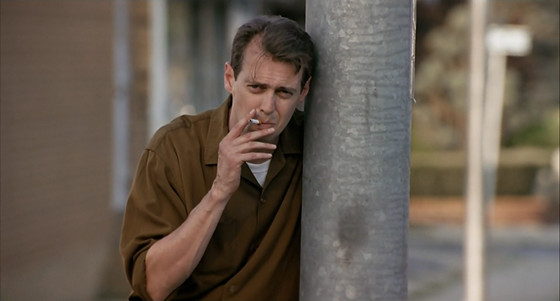
Trees Lounge is a quiet, modest little sleeper, and about as down-to-earth as movies get. Steve Buscemi stars (he also wrote and directed) as Tommy, an unemployed mechanic who spends much of his time stumbling around the titular establishment, a bar located in his small blue-collar town. Charismatic but aimless, Tommy has far more enemies than friends and stands at the foot of many a burned bridge. Right from the opening scene, he’s in a bad place and we watch as he continually makes things worse for himself.
That’s not to say that Trees Lounge is a bleak downer of a picture; on the contrary, it possesses a real warmth and humanity that stops us from ever being able to hate a born loser like Tommy. Buscemi doesn’t romanticize this man or try to endear him to us. He presents Tommy exactly as he is, and does so with such a natural ease that the audience can’t entirely hate him.
There are no grand schemes, no cliches, no fish-out-of-water plot devices. Humor is never shoehorned in, always stems naturally from the situations. We’re presented with our wayward protagonist and we simply observe his life, how he affects those near to him. The people who populate this film manage to fascinate and endear in the simplest ways.
Mark Boone Junior, a fantastic actor who has never gotten the attention he deserves, is particularly good as Mike, a new arrival in town who finds himself in Tommy’s unfortunate orbit. The laid-back, deliberate pacing of Trees Lounge may be too subdued for some, but those with a taste for memorable characters and beautiful dialogue – seek this one out.
5. Normal Life (1996)
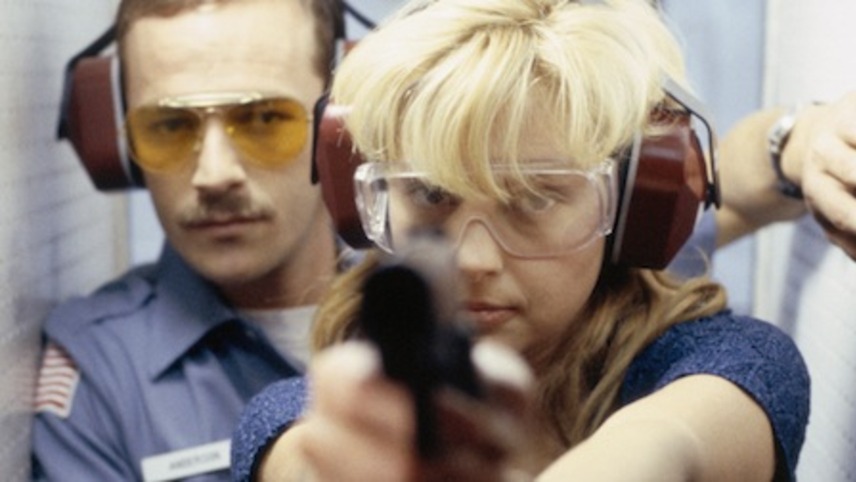
Based on the tragic true-life case of Jeffrey and Jill Erickson, John McNaughton’s Normal Life tells the story of a toxic relationship between a cop (Luke Perry) and a seriously deranged woman (Ashley Judd). They meet, fall passionately in love, and eventually get married.
As the straight-laced law officer begins to settle down with this train-wreck of a human being, their lives gradually develop into a violent nightmare. Top priority in his life is given to a genuine psychopath and it costs him jobs, friends, family, and eventually much more. Judd gives an astounding performance, projecting a volatile, dangerous aura that’s offset by her stunning beauty.
Luke Perry is, miraculously, also quite good and matches Judd every step of the way. Saddled with an inexcusably lame title and barely released in 1996, this is a film that never had a chance.
A movie called Normal Life starring Luke Perry (then best known from his role on Beverly Hills 90210) probably didn’t have audiences breaking down theater doors and buying up all the Goobers, but this is an accomplished piece of work. In fact, it’s superior in all respects to McNaughton’s highly acclaimed (and admittedly excellent) debut, Henry: Portrait of a Serial Killer.
The director juggles sound and image like a master, making excellent use of his locations. Normal Life is a small-town, suburban crime tale, set against a backdrop of strip malls and family restaurants, infused with a sense of comfortable familiarity. American viewers will likely find themselves thinking, “I feel like I’ve been there before”. Everything, from top to bottom, is well-handled.